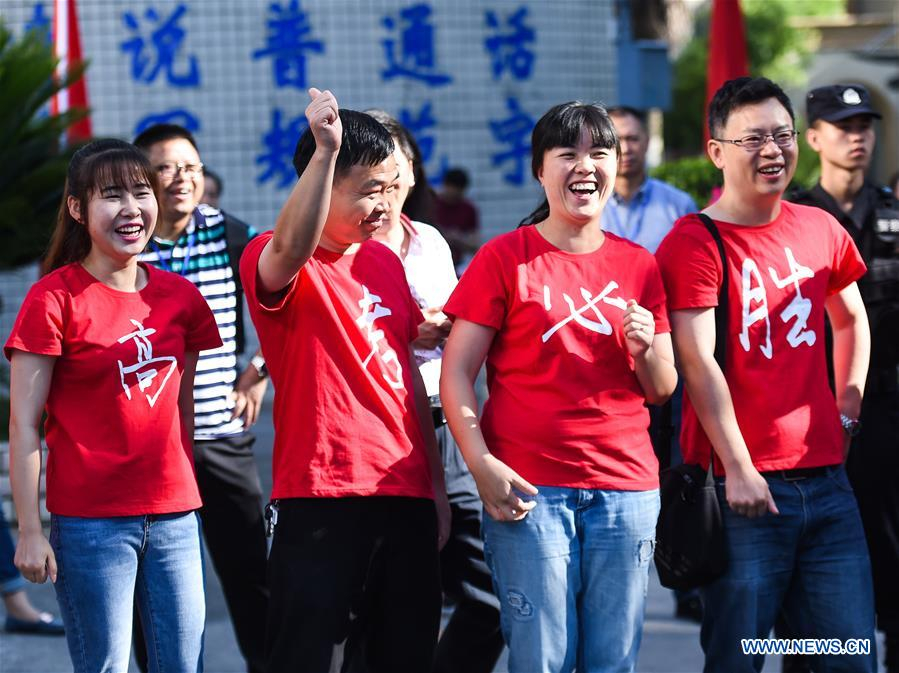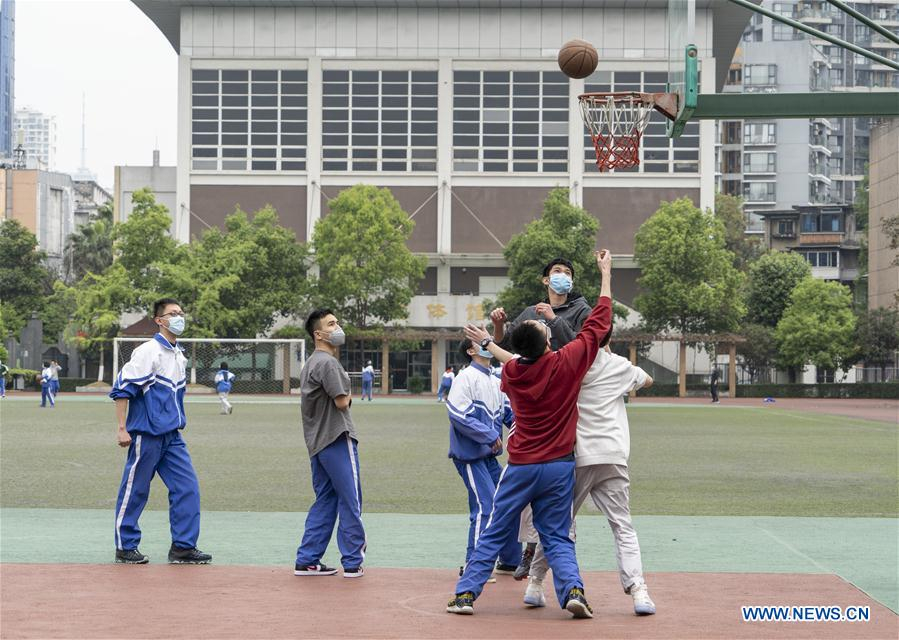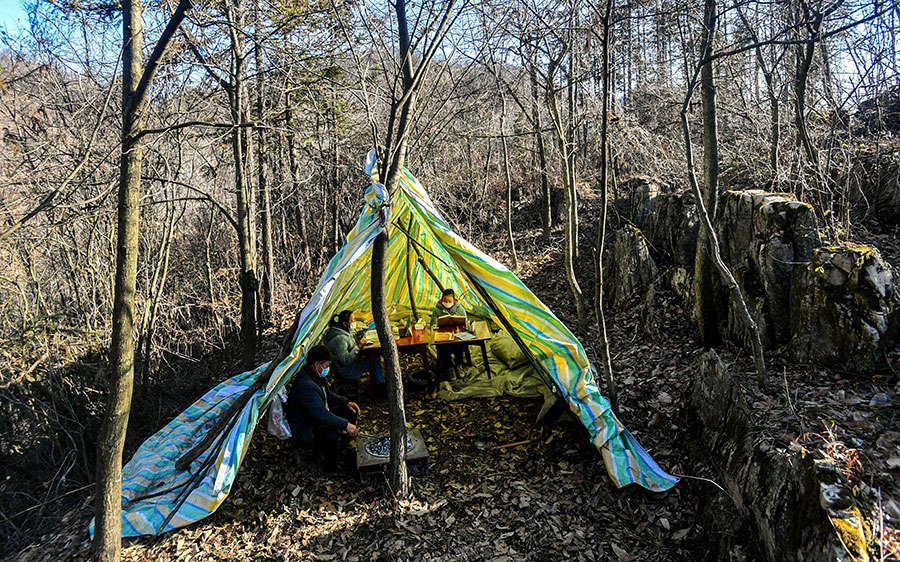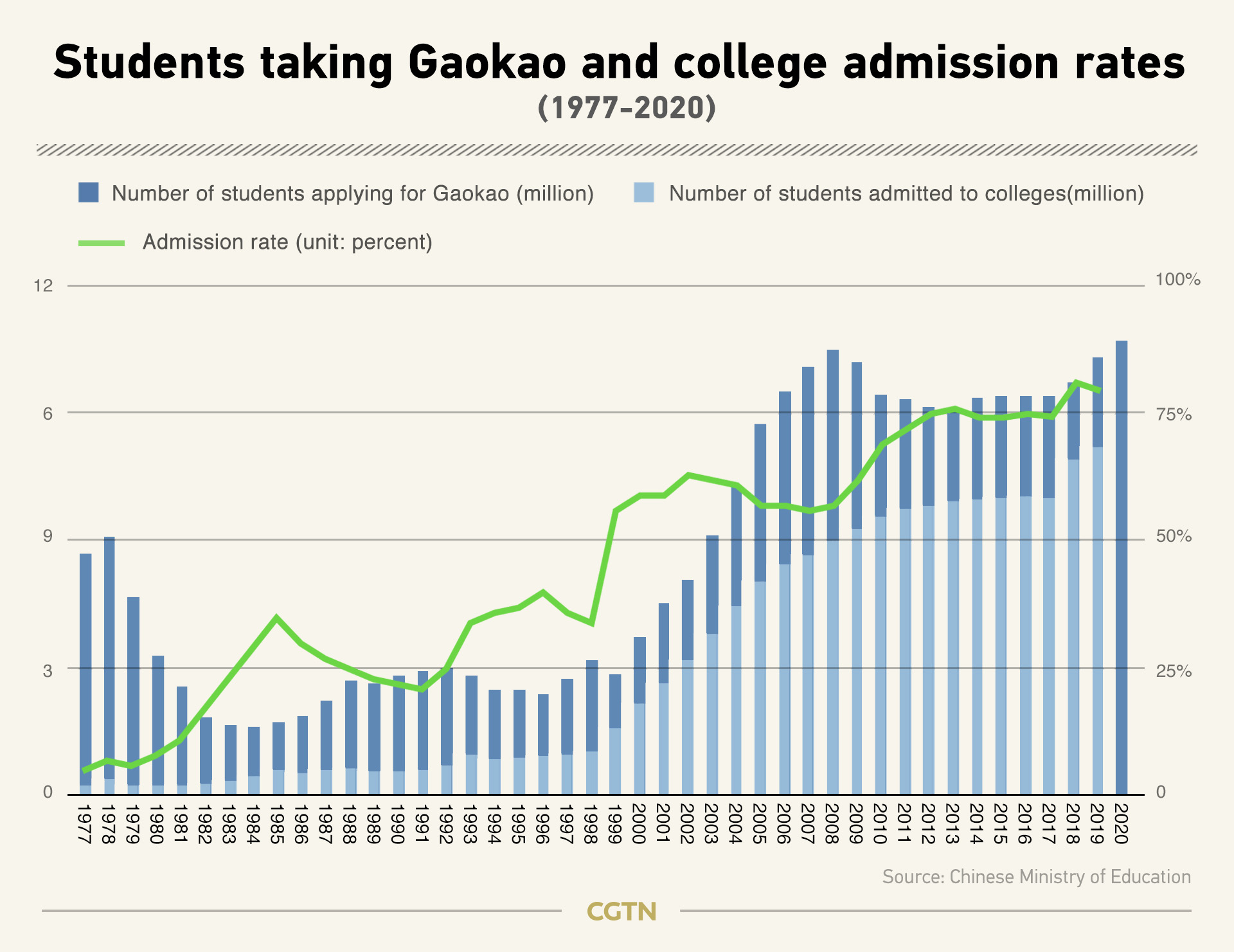If there are any tips teachers can offer to their students taking part in this year's Gaokao, it will be to have a brave heart and prepare well.
China's Ministry of Education in late March announced postponing the national college entrance examination, or Gaokao, by a month, to July 7 and 8 because of the novel coronavirus pandemic.
00:52

Matthew effect
Experts in education warned of the possibility that A-list students will get better grades and weaker students will fare poorer due to the delay.
This phenomenon is linked to the Matthew effect, which posits a widening gap between those who perform better and those with lower scores.
Yuan Lihong, teacher of the Harbin No.1 Senior High School in northeast China's Heilongjiang Province, pointed out that the ability for self-review is critical to preparedness.
"It is easier for students who are self-motivated and have good educational foundation to stand out from the exam," Yuan noted.

Teachers encourage examinees at an exam venue in Guiyang, capital of southwest China's Guizhou Province, June 7, 2018. /Xinhua
Teachers encourage examinees at an exam venue in Guiyang, capital of southwest China's Guizhou Province, June 7, 2018. /Xinhua
Hence, Wang Feng, specialist of Yangzhou Institute of Education Sciences in east China's Jiangsu Province, suggested students, especially those with lower scores, change the rhythm accordingly under the guidance of teachers and parents.
Based on two mock examinations held in his city, Wang said "whether there are involvement of parents and strong self-discipline will badly affect students' performance," recommending students to be productive during their revision.
A mission of the mind
But for high school graduates writing this year's Gaokao, an extra month also means a mission of the mind.
Jin Chunlan, director of Heilongjiang Institute of Education in northeast China's Heilongjiang Province, believes that the additional 30 days will have a psychological effect on students, such as excitement, anxiety and absence, which requires psychological counseling.

Students play basketball at the middle school attached to Sichuan University, southwest China's Sichuan Province, April 1, 2020. /Xinhua
Students play basketball at the middle school attached to Sichuan University, southwest China's Sichuan Province, April 1, 2020. /Xinhua
"Schools are advised to set up some courses to counsel students on how to adjust mentality," Jin said, adding that online teacher-parent conference is always necessary for home-school education.
Sun Xilin, principal of Jinling High School in Nanjing, capital of east China's Jiangsu Province, reminded students to be aware of scorching weather and tiredness; Chen Zhiwen, member of National Education Test Steering Committee, told students to arrange time properly, adjust rest time and study time so as to relieve anxiety.
Ensure fairness in process
Postponing Gaokao schedule also fundamentally reflects the fairness of China's national college entrance examination, Xiong Bingqi, a deputy director of the Shanghai-based 21st Century Education Research Institute said.
While sticking to the original schedule may seem fair since all examinees from the same province take the exam at the same time, the expert pointed out that from a justice perspective, it's not fair for students from rural or poor families.
Although students from final year of senior high school have taken online courses at home since January 30, poor internet access and insufficient family supervision and guidance have all widened the educational divide between urban and rural children.

A girl attends online classes in a tent outside a remote village in Hubei provincein February, 2020. /Xinhua
A girl attends online classes in a tent outside a remote village in Hubei provincein February, 2020. /Xinhua
Thus, providing students with online resources doesn't mean that the learning effect is the same, said Xiong, adding that it depends on students' acceptability and teachers' education experience.
Many urban children have the experience of enrolling in online tutoring classes so they can easily adapt to online education, but for many poor students online education is a new study style and they need time to adjust at online school, according to Xiong.
He added the situation is same for teachers. Teachers in urban schools have richer online education practice experience and for many rural teachers, online education is still a struggle.
The education expert believed it is necessary for rural students to have complete final-year study experience to catch up.
10.7 million
According to the ministry of education, 10.7 million Chinese students will sit for Gaokao this year, a record high number since the country resume the exam in 1977. The last peak nationwide came in 2008 with 10.53 million candidates.

The enrollment expansion policy including establishing more higher education institutions and expanding vocational college enrollment has resulted in growing admission rate in recent years .
Nevertheless, analysts said this year's substantial increase in the number of candidates is bound to further intensify competition on getting into key universities.
Thus, with an eye on the pandemic, students with plans to study abroad may reconsider taking the route of Gaokao. These competitive students can also intensify the competition for examinees looking to enter top schools in the country.
Based on the number of people studying abroad in 2018, it is estimated that in 2020, the number of students going abroad should be close to 700 thousand.